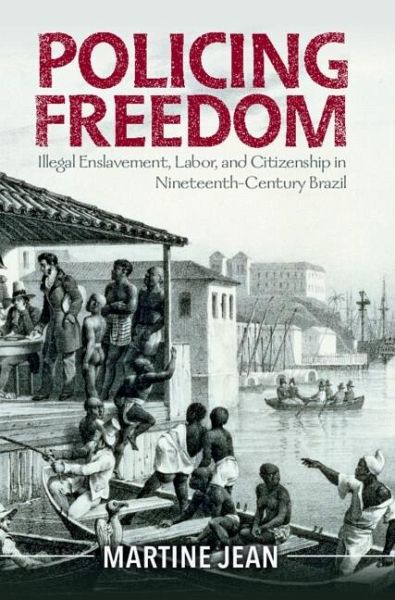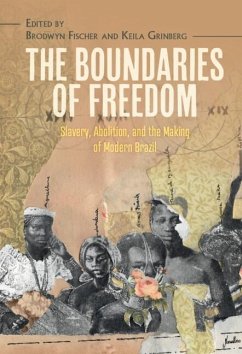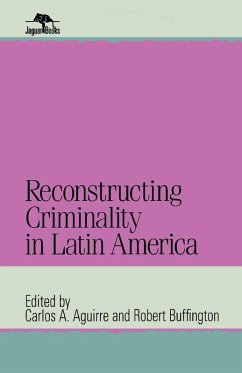
Policing Freedom (eBook, ePUB)
Versandkostenfrei!
Sofort per Download lieferbar
84,95 €
inkl. MwSt.
Weitere Ausgaben:

PAYBACK Punkte
42 °P sammeln!
Policing Freedom uses the case study of Brazil's first penitentiary, the Casa de Correcao, to explore how the Brazilian government used incarceration and enforced labor to control the prison population during the foundational period of Brazilian state formation and postcolonial nation building. Placing this penitentiary within the global debates about the disciplinary benefits of confinement and the evolution of free labor ideology, Martine Jean illustrates how Brazil's political elites envisioned the penitentiary as a way to discipline the free working class. While participating in the debate...
Policing Freedom uses the case study of Brazil's first penitentiary, the Casa de Correcao, to explore how the Brazilian government used incarceration and enforced labor to control the prison population during the foundational period of Brazilian state formation and postcolonial nation building. Placing this penitentiary within the global debates about the disciplinary benefits of confinement and the evolution of free labor ideology, Martine Jean illustrates how Brazil's political elites envisioned the penitentiary as a way to discipline the free working class. While participating in the debates about the inhumanity of the slave trade, philanthropists and lawmakers, both conservative and liberal, articulated a nation-building discourse that focused on reforming Brazil's vagrants into workers in anticipation of slavery's eventual demise, laying the racialized foundations for policing and incarceration in the post-emancipation period.
Dieser Download kann aus rechtlichen Gründen nur mit Rechnungsadresse in A, B, BG, CY, CZ, D, DK, EW, E, FIN, F, GR, HR, H, IRL, I, LT, L, LR, M, NL, PL, P, R, S, SLO, SK ausgeliefert werden.













